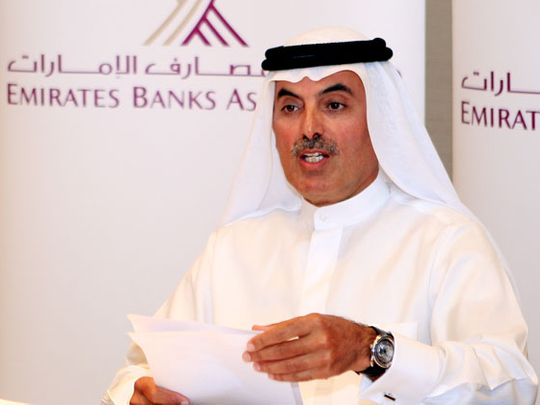
Dubai: The Emirates Banking Association (EBA) will submit its recommendations on mortgage caps to the UAE Central Bank, to lower the threshold of homeowners’ downpayment or equity toward buying property. The EBA is presenting a unified stance to apply some pressure on remedying the issue with the Central Bank, the association’s chairman said in a press conference.
The EBA, which represents the major banks in the UAE, is proposing a mortgage cap on lending for the first property at 75 per cent for expatriates and 80 per cent for Emiratis, said EBA Chairman Abdul Aziz Al Ghurair. A second home loan would be capped at 60 per cent for expatriates and 65 per cent for Emiratis in the EBA’s recommendations, he said.
Property under construction should be capped at 50 per cent for both expats and Emiratis to minimise flipping property, he said. Emiratis with access to home finance through a government entity such as the Mohammad Bin Rashid Housing Establishment should be excluded from the mortgage limits, he added.
Limit
The EBA is also considering limiting total lending on a single mortgage to Dh25million, Al Ghurair said. The maximum repayment period on a mortgage loan could be 25 years, he said.
The value of total mortgage lending in the UAE stands at Dh60 billion out of a total Dh500 billion in retail lending, he said, adding that mortgage lending is the least risky for banks.
The recommendations are a response to a second questionnaire from the Central Bank to gauge the opinions of banks on the circular it issued in December that capped mortgages at 50 per cent for expats on the value of the first property.
Al Ghurair insisted that the EBA and Central Bank are in continued dialogue to “reach the ideal solution” and that the Central Bank is expected to make a final decision by the second half of the year.
The EBA has urged the Ministry of Finance and Central Bank to speed the process of activating the Credit Bureau, where every mortgage lending would be registered.
Ideally, the mortgage cap policy should be reviewed periodically to reflect changes in the real estate and financing market, he said.
Impact on property market
Al Ghurair did not believe the mortgage caps will negatively affect the property market.
“People speculate on the negative effects on the real estate market but 70 per cent buy on cash,” he said.
Asked why the banks reacted swiftly to the Central Bank’s circular if there was not a negative impact on the market, he said some regulation was necessary so that the market would not overheat and to protect consumers. However, the EBA wants a “light policy” from the Central bank that would not dictate a credit policy for all banks, leaving no room for competition between them.
Asked if the banks were currently implementing the Central Bank circular’s instructions, he said “each bank is doing what’s right for themselves.”
Al Ghurair insisted that the circular issued by the central bank in December to banks were not instructions but a notification of where the policy was heading.











